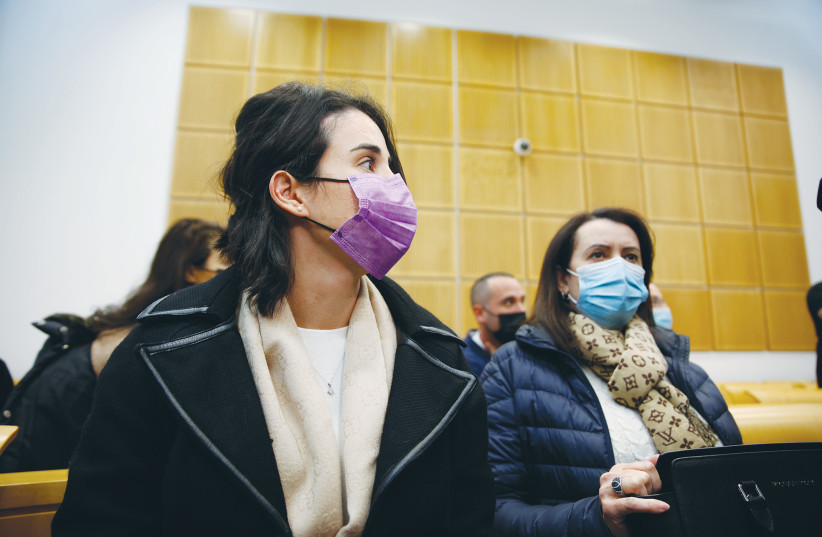The High Court of Justice rejected the appeal by Aviad Moshe, the attempted murderer of his ex-wife Shira Isakov, to decrease the severity of his punishment, on Sunday.
The justices unanimously rejected Moshe’s claims that his sentence of 23 years in prison and NIS 258,000 in compensation fines was severe for his attack on Isakov, in which he stabbed her 20 times with a kitchen knife and beat her with a rolling pin.
There is a strict policy in cases of spousal violence, said the High Court, and severe punishments were ordinary and necessary. The nature of the extreme violence, duration, and damage of the attack justified any harshness of the punishment. The court noted that the prison term was not even the maximum punishment for the crime.
"The sound of the blow hitting the complainant’s skull and other parts of her body still sounds in my years, as if they've been fixed in my ears."
Yosef Elron
Why did Aviad Moshe try to appeal his sentence for trying to murder his wife?
The attempted murderer said that he had not been properly represented in the trial, resulting in a trial in which he had no input. The court said that he had chosen to exercise his right to remain silent.
Moshe also argued that his representation had failed to present evidence about his mental state. He contended that he was not mentally well when he attacked his then-wife, saying that he had lost control due to Isakov’s provocations and was not consciously aware of his actions during the attack. He had wanted to submit new evidence of a psychological evaluation.

The court had allowed for the submission of the psychological evaluation as part of the appeal on May 22, but on Sunday rejected admitting the analysis into the case as new evidence. Moshe’s previous representation chose not to submit an evaluation, and there was no satisfactory explanation as to why this was the case. The court said that they had to respect the finality of trial decisions, and that the evidence wouldn’t change the outcome given the preponderance of audio and video evidence that indicated Moshe was conscious and culpable of the crime.
Moshe appealed a verdict that he had abused the couple’s son, who was at Isakov’s side when the attack occurred at their Mitzpe Ramon home. He argued that his actions should not be considered abuse and was convicted twice for the same crime. Moshe also argued that he had also not been made aware of the charge during the police investigation.
While there isn’t much precedent for determining abuse by inflicting mental trauma, the justices said that Moshe indeed abused his son by failing to keep the child away from the scene or ceasing the violence in his presence, forcing him to witness the horrific attack on his mother. They said that the child had experienced the attack with all his senses, including his mother’s blood spurting on him. The court said that defendants do not need to be aware of the fact that they had committed an offense.
Justice Yosef Elron emphasized that the cruelty and traumatizing impact of the attack that occurred in front of the child was evident in the audio recordings.
“The sound of the blow hitting the complainant’s skull and other parts of her body still sound in my ears, as if they’ve been stuck in my ears – of the father beating the mother to the sounds of her cries, while she begs for mercy, and he continues the act without mercy,” said Elron.
He said in all his years on the bench, hearing hundreds if not thousands of violent crimes, he couldn’t remember an attack so prolonged and cruel.
Moshe “deserves every year of imprisonment he was sentenced to,” Elron said.
The case of Moshe’s attempted murder of Isakov was a highly publicized incident that highlighted the problem of domestic violence in Israeli society. Moshe claimed in his appeal that the outsized media attention had influenced his case, but the court said that Moshe was the only one who had caused his conviction, by attempting to murder his wife.
